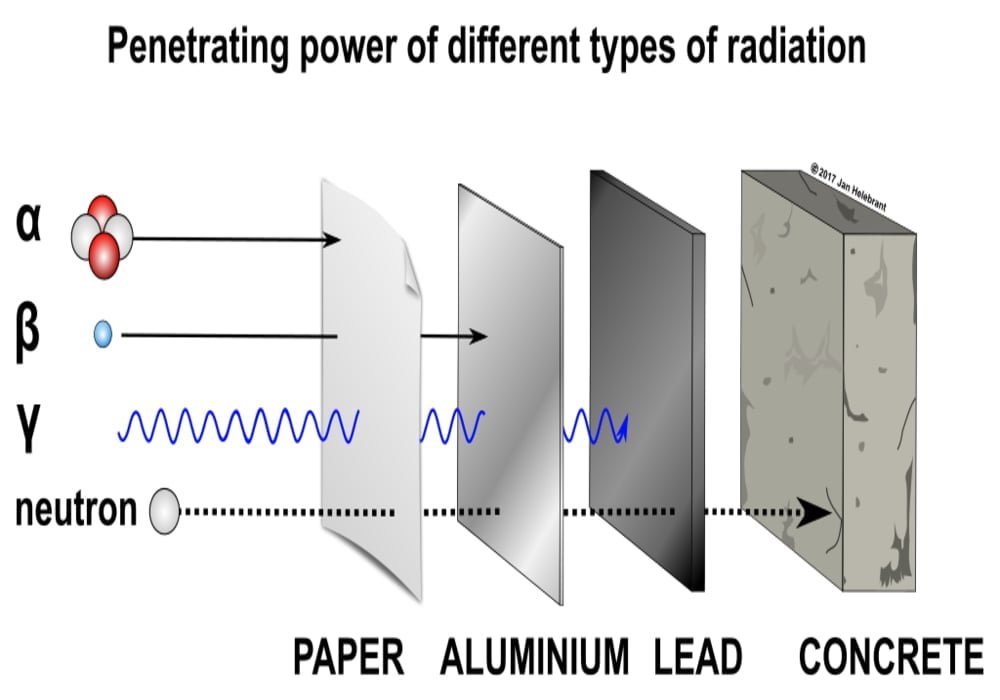Gamma Radiation (Gamma γ Rays) Often denoted by the Greek letter gamma, ). Gamma rays are an energized form of electromagnetic radiation produced by radioactivity/other nuclear/subatomic processes such as electron-positron annihilation. What are gamma...
Read More Alpha Radiation | Explanation, Use of α Particles and Health Impact
Alpha Radiation (α Rays) Alpha rays (or alpha particles or alpha radiation) are a form of radiation emitted by highly ionized and poorly penetrating particles. They consist of two protons and two neutrons combined...
Read More Beta Radiation (Beta Rays) | Beta-minus and Plus Radio radioactivity
Beta Radiation (Beta Rays) β Beta radiation is a form of radioactivity in which the nucleus emits electrons and antineutrinos (beta minus radiation) or positrons and neutrinos (beta plus radiation). This process gives rise...
Read More Neutron Radiation | Risks and Effects on Health, Role in Nuclear fission
Neutron Radiation Neutron radiation is ionizing radiation consisting of free neutrons (with different kinetic energies). Because neutrons are electrically neutral, the charge on the atomic nucleus and electrons has no effect on their movement....
Read More
10 Minutes
Ionizing Radiation Summary of Alpha (α), Beta (β), Gamma (γ) Radiations and Neutron
Ionizing Radiation This article discusses the radiation of light rays alpha (α), beta (β), gamma (γ), radiation and neutrons. Certain types of ionizing radiations have sufficient energy to rip electrons out of their orbits...
Read More 